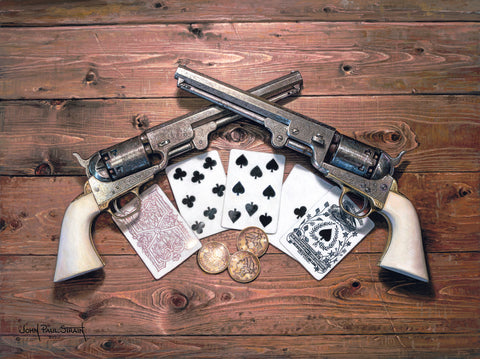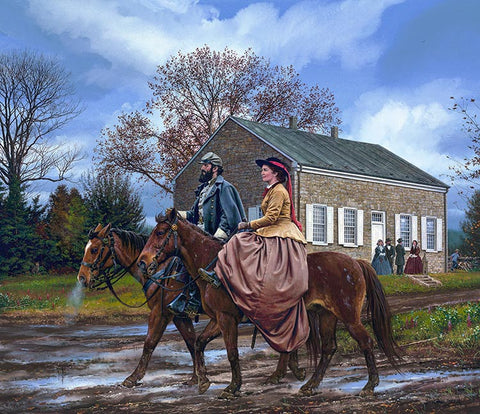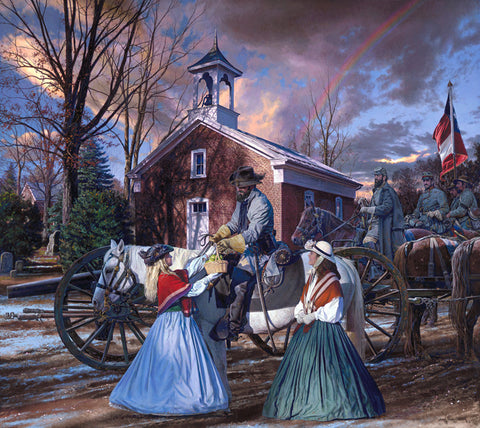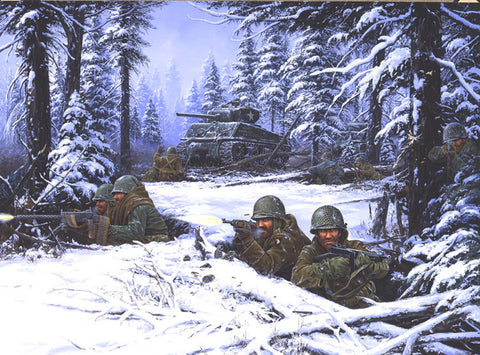Never Against Virginia
by John Paul Strain
Arlington Estates, April 20, 1861
In the spring of 1861, he was described as the most promising officer in the United States Army. Hero of the Mexican War, superintendent of the U.S. Military Academy at West Point, capturer of the radical John Brown, Col. Robert Edward Lee was highly thought of by old "Fuss and Feathers" himself General Winfield Scott.
On April 18th, at the request of Abraham Lincoln, Lee was summoned to Washington and met with Francis P. Blair, where he was offered field command of the entire Union Army. Lee politely declined. Virginia had voted to secede the day before.
It was at his Arlington estates that Lee confronted the greatest dilemma of his life. He had turned down Lincoln's offer to climb to the highest pinnacle of any man's military career thus remaining loyal to the State of Virginia and his family ties to the South. But the winds of war were sweeping around him and soon orders to duty would follow. Lee spent the evening alone in his wife's flower garden next to their home. A special place for the Lee family, the garden served not only as an area for Mary Lee's rose cultivation, but also as a favorite gathering place and retreat for all members of the family. It is there where Lee would make his momentous decision that would change the course of American history.
At midnight Saturday the 20th of April, Lee wrote his letter of resignation from the United States Army. On the 21st the Governor of Virginia asked Lee to take command of the state militia. Lee explained that he could never draw his sword against his native state. When he was called upon to take command of Confederate forces, Lee left his beloved Arlington behind, destined never to return. For four years his brilliant, charismatic leadership would inspire the Army of Northern Virginia and the people of the South.
Studio Image Size 16" x 21 1/2";
Classic Image Size 22 1/4" x 30"
Executive Image Size 28 1/4" x 38"






Share this item: